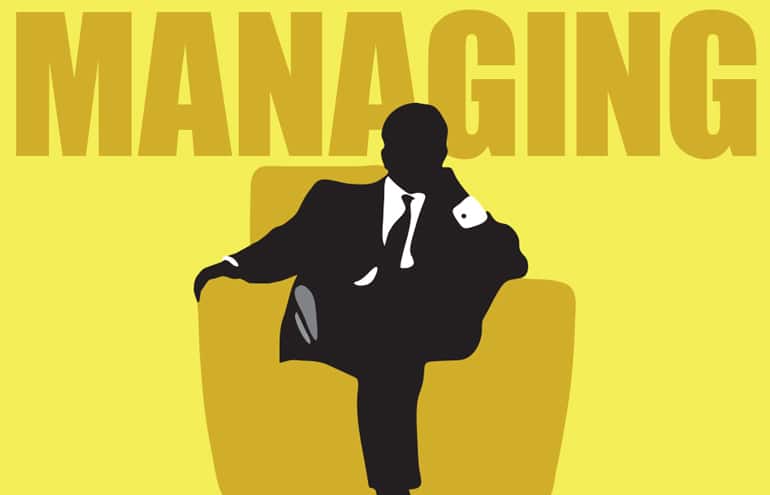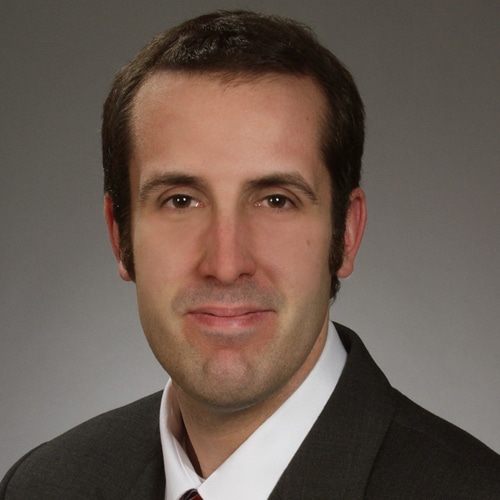Yes, you read that correctly. Clio recently raised $250 million in a Series D round of investment. It’s arguably the biggest single capital round in the history of legal technology — and it’s probably the de facto largest, given that the LegalZoom round that would top it was more of a restructuring. Clio’s Series D is the biggest round in the biggest year for legal technology investment on record. And we still have a couple of months to go.
It’s true: #legaltech isn’t just a hashtag anymore (if it ever was).
But it’s also true that Clio is now officially the fifth most important thing to come out of Canada, after (in order) Gordon Lightfoot, Dudley Do-Right, Bryan Adams and the Barenaked Ladies. In fact, maybe BNL could rewrite its signature live song in honor of Clio’s biggest win to date: “If I Had $250,000,000.” (“But, we would eat Kraft dinner, we’d just eat more.“) Now, Clio can afford all the Dijon ketchups.
A Monumental Raise
I spoke recently with Mark Britton and Jack Newton, Clio’s CEO, about what this deal means. Britton, who in 2018 sold Avvo to Internet Brands and is now affiliated with a venture capital firm in Seattle, helped spearhead this round of investment, while also becoming an investor himself and a Clio board member.
“After working on this deal for most of this year, I’m really excited to see it happen,” Britton told me. “I’ve known the TCV folks since 1999 and Clio for over a decade, and they both have a culture of excellence: building excellent companies and teams, delivering excellent products. It makes me really honored to be part of this collective, both as a board member and an investor.”
And, I have to say, it just feels right to have Mark Britton back in the legal field in some capacity.
Newton and I sat down last week to talk over technological innovation in the legal industry, the access to justice issue (#A2J — that’s a hashtag, too) and the next phases of the Clio enterprise.
Here’s what he had to say.
Innovation “Seems to Be the Hardest Word”
Newton (correctly) asserts that “legal is the last major industry to be fundamentally transformed by technology.” He also says “the legal industry needs an infusion of innovation and technology built the way that consumers want to be served in today’s market.” And how, right?
If nothing else, Clio’s endlessly interesting annual Legal Trends Reports highlight the massive gap between consumer expectations surrounding legal services and lawyers’ suppositions about what consumers want from law firms. Spoiler alert: The gap is about as wide as the Grand Canyon. This is partly a product-market fit problem (more on that in a moment), but the investment in Clio shows that prominent investors believe legal technology can streamline intake and client management so that those expectations can become more aligned. When consumers and lawyers speak the same language and use complementary technology tools, the product-market fit problem for legal will get solved. Until then, it remains very much like the Tower of Babel in this space.
But this isn’t just a marketing problem.
Newton also speaks to the fact of law firms being overwhelmed by operating costs. Because law firms are so reluctant to use new technology (and, in many cases, don’t have access to the right tech to use), it means they’re massively inefficient. So, in theory, even if the standard law firm solves its intake problem, it doesn’t automatically solve its service delivery problem. High overhead costs driven by traditional processes mean firms can’t price solutions the way modern consumers require, and they can’t deliver a timely product because lack of efficiency curtails their speed. Newton describes this as an “overhead tax” on law firms that are not efficient in the way they employ technology. In a perfect world, he says, “Technology should eliminate overhead and create improved product-market fit, which will, in turn, make law firms more profitable.”
But guess what? It’s not just about marketing and technology, either.
There are a number of ways law firms can innovate — they just don’t. So, law firms stagnate. But, as Newton puts it, “Even mild innovation increases revenue.” I share this belief, although many law firms don’t focus their efforts in this way. If you can become even 1% more innovative than your competitor law firms, that is a massive competitive advantage. “Over the next decade,” Newton says, “lawyers will be forced to innovate.”
The day of reckoning is upon us.
Hey2J
Some folks in the legal community have expressed doubt or consternation over the inclusion of “access to justice” in the press release surrounding the news of Clio’s capital raise. I’ve heard commentary about those truly generous billionaires who only want to support legal aid. However, that’s a myopic view of the problem statement, and conflates the notion of “access to justice” with “access to free or deeply discounted legal services.” Access to justice in its broadest sense — as access to legal services — is not just about serving the poorest of Americans, it’s about serving the vast majority of Americans, period. After all, it’s not the consumers’ fault that the form and method by which lawyers price their services is antithetical to modern economic realities. That’s like blaming the iceberg for hitting the Titanic.
Newton, as CEO of one of the largest legal-facing companies in the world, understands this: “77% of consumers who have a legal issue do not have that legal issue resolved by a lawyer, and yet the No. 1 thing lawyers want is new clients.” He describes this percentage of potential law firm clients as making up “the latent legal market.”
Newton fundamentally understands how massive the total addressable market for lawyers really is. He is also acutely aware that “lawyers leave opportunity on the table every day” due to antiquated marketing tactics and old-school management techniques. To that end, he describes the access to justice problem, across the board, as one of “product-market fit.” While it’s a term that corporations are more comfortable with than law firms, it’s instructive nonetheless. Product-market fit, at bottom, concerns whether you can sell a product to your consumer base, and how well.
Newton sums up the larger point when he says the ‘A2J gap is language lawyers use to describe a product-market fit problem respecting the way legal consumers engage legal services.’
Clio is uniquely situated to develop products and services to help eliminate some of the marketing and management difficulties that lawyers continue to mire themselves in, like baby dinosaurs wandering aimlessly into tar pits.
If Clio can help lawyers to address (read: access and convert) even 1% more of the total addressable market for legal services, this capital raise may be the biggest thing to ever happen to attorneys.
Yes, even bigger than “Reveal Codes” in WordPerfect.
What Are We Going to Do Tonight, Brain?
So, I know what you’re thinking: Clio has enough money to take over the world! Maybe you’re fashioning your very own tinfoil hat right now. Don’t fret, though: Newton’s goals are slightly more restrained than that.
When we talked over Clio’s history, Newton explained that while the first decade or so of development and growth (2008-2019) was focused on building a productivity software, the next 10 years will be concentrated on building a superior client experience. Understand, though, that the term “client” has two meanings for Clio. In the first instance, Clio wants to continue to build a better product for its lawyer clients — but they also want to do that in such a way that it improves the customer service experience for law firm clients, thereby increasing revenue for the lawyers who pay Clio directly to access its suite. This point is driven home by Clio’s recent acquisition of Lexicata, now known as Clio Grow.
To deliver these products and services in a focused way, Newton says, “Clio can become the operating system for legal.” It has already built out a platform and it will be able to continue expanding its thriving app ecosystem so Clio can be tailored to specific practice areas and become a viable solution for law firms of any size.
Newton’s vision is “to help lawyers of all stripes.” To my mind, this is an interesting counterpoint to the vogue of creating new law practice management software systems for specific practice areas only. Clio’s ability to generate apps serving specific practice areas may render that potential sales advantage moot, over time. Not that it’s even clear that other case management systems are Clio’s direct competition any longer. Moving in this direction, for Clio, means pushing into the space occupied by organizations like Internet Brands, which I would refer to as legal services aggregators, and which are seeking to capture as much market share across the law firm client lifecycle as possible.
Newton admits he’s cribbing a bit from the Salesforce playbook here, by wholly embracing the platform model. There are certainly worse playbooks to crib from, amiright?
If Clio Phase Two sees an outgrowth in its platform, and better technological options across the client lifecycle, that’s a really big deal, even if it sounds relatively modest against the backdrop of the capital investment that will drive it.
What We’re Looking At: Clio Phase Three
Of course, this all begs the question of what Clio Phase Three will look like, and how it will begin to reveal itself.
(And, just like that, we’re talking about the Clio App Universe as if it’s the Marvel Cinematic Universe: What if Tony Stark were a legal tech entrepreneur instead of a weapons developer? Actually, that would be a super boring movie … never mind.)
Let me tell you what I think:
- Clio will continue to grow its app environment and continue to make acquisitions of targeted related products as it pushes further into the intake and lead management space, thereby taking over more and more real estate within the law firm client lifecycle.
- Phase Three will begin in earnest when Clio launches a consumer-facing product, which platform growth and acquisitions will set the stage for.
- And, if Clio can pull that off successfully, they can get to a $1 billion valuation as a legal technology company. So, watch out for that next capital raise.
Illustration ©iStockPhoto.com

















